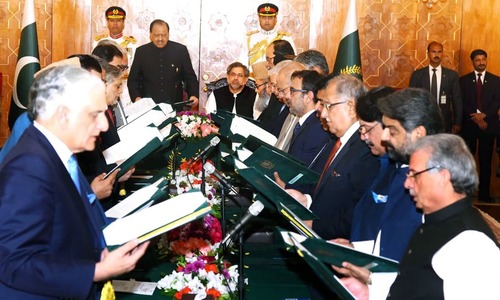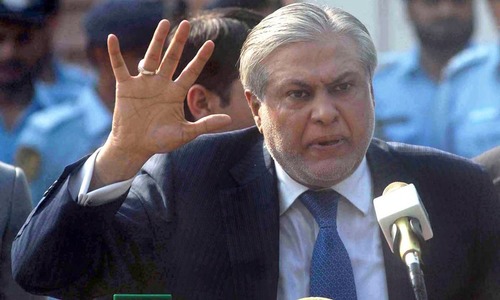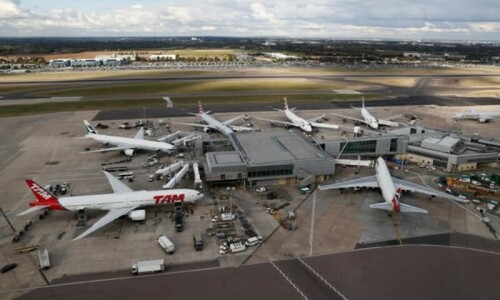ISLAMABAD: In a major development on Friday, Prime Minister Shahid Khaqan Abbasi created new ministries and divisions, as well as reconsolidated the functioning of three existing ministries to improve governance and implementation of economic policies.
An official source said the new federal ministries were created to accommodate new ministers.
The new ministries and constituent divisions were created under the provisions of Rule 3 of the Rules of Business, 1973.
An official source told Dawn that reorganisation of economic ministries to improve coordination within different divisions was long overdue. The World Bank had also recommended the reorganisation, especially in the Ministry of Water and Power, the source added.
According to the decision, the prime minister has created a new Federal Ministry of Energy, with two constituent divisions — Power Division and Petroleum Division.
Another new federal ministry has been created with the name of Ministry of Water Resources with one constituent division — Water Resource Division.
The water and power ministry has been done away with, petroleum ministry reorganised into a division
As per the decision, the existing Water and Power Ministry has been dismantled by creating a separate Power Division and transferred its businesses to be looked after by the federal energy minister.
The Ministry of Petroleum and Natural Resources has been converted into Petroleum Division. However, those departments of the petroleum ministry which deal with power production will be placed under the Power Division.
The water issues and subordinate departments will fall under the division of water resources.
A federal secretary is the principle accounting officer of each division.
According to the source, the new divisions were created on the model currently in practice in Turkey and India.
“This will help the government to improve coordination in power production and installation of new power projects as well,” the source said.
The move will also help accelerate the implementation of power projects under the China-Pakistan Economic Corridor, he added.
A new Federal Ministry of Commerce and Textile has been created with two constituent divisions — Commerce Division and Textile Division. Accordingly, the current business of the two existing divisions of commerce and textile industry shall be placed under the new ministry.
In 2013, the two divisions were created and placed under one minister. However, in 2014 the two divisions were separated and made full-fledged ministries. There was a full-fledged commerce minister while the Ministry of Textile Industry was under the administrative control of prime minister since March 2015.
To adjust new ministers, the prime minister has also created three new ministries and their constituent divisions.
As per decision, Ministry of Statistics has been created with one constituent division — Statistics Division; Ministry of Privatisation, with one constituent division — Privatisation Division; and Ministry of Narcotics Control, with one constituent division — Narcotics Control Division.
Accordingly, the residual ministries will now be named as the Ministry of Finance, Revenue and Economic Affairs, comprising three divisions — Finance Division, Revenue Division and Economic Affairs Division; and Ministry of Interior, comprising the Interior Division only.
Another ministry was created namely Ministry of Postal Services, with one constituent division — Postal Services Division.
The business of the existing Communications Division to the extent of postal services shall be transferred to the new division while residual business shall remain with it.
The Cabinet Division will take further action immediately to implement the prime minister’s orders.
Published in Dawn, August 5th, 2017
















































